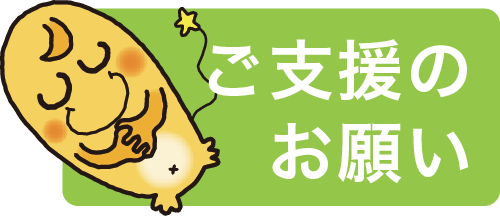![]()
Toshizo IDO 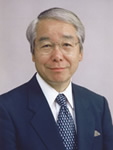
Governor of Hyogo Prefecture
On the Occasion of the International Conference on Animal Care in Kobe
The holding of this year’s International Conference on Animal Care in Kobe is bringing together animal lovers from a host of different fields. On the occasion of this conference, I would like to offer my heartiest greetings and my warmest welcome to all those who are visiting us here in Hyogo and Kobe from across the country and around the world.
Since time immemorial, people have lived with different kinds of animals. These include animals that support our livelihood and health, animals that provide us with comfort and liveliness, animals that display their activities for disaster relief, and animals that serve as the eyes, hands or feet of people with disabilities. All of these animals are indispensable in our everyday lives and to the functioning of society.
Following the Great Hanshin-Awaji Earthquake, which struck this region 15 years ago, in addition to the rescue and relief operation for the human victims of the disaster, a rescue operation for animals caught up in the earthquake was mounted with the support of people all across Japan and centered on the Animal Rescue Headquarters established under the guidance of veterinary medical associations and the Japan Animal Welfare Society (JAWS). This endeavor helped us to realize the strength of the ties between people and animals, and also presented us with a brand new perspective on disaster measures in Japan. Moreover, the experiences and lessons learned at that time have been extremely useful in helping people in Japan to cope with other major disasters that have occurred subsequently.
In present-day Japan people keep a great variety of animals as pets. Regrettably, however, there are also many cases in which owners abandon animals in their care for selfish reasons. Against the background of this situation, the revised Law Concerning the Protection and Control of Animals, which includes strengthened responsibilities for those keeping or raising animals, came into force in 2006. On the other hand, in rural parts of the country, the damage caused to agricultural produce by wild animals is a growing problem.
The 21st century should be an era of coexistence. I believe that the way in which each of us thinks and acts in our relationships with the animals close to us can become a first step towards achieving coexistence between people and the natural world.
In addition to encouraging people to take in ownerless or homeless dogs and cats, Hyogo Prefecture is promoting animal control, animal protection and crisis management measures such as looking for new owners for animals and providing training classes, “contact with animal” events, etc., using Animal Wellbeing Centers as a base. Also, in participation and cooperation with local residents, concerned organizations and NPOs, the Prefecture is laying emphasis on a project to return storks to the wild, as well as on wildlife management that seeks to adjust the numbers of wild animals to the natural environment appropriately, improving the management of livestock farming, etc.
Because of all these things, it is really wonderful that the International Conference on Animal Care in Kobe, which provides an occasion in which we can all think deeply about our responsibilities to animals, is being held here in Hyogo. My wish is that the general understanding of animal care will be deepened here as a result of ambitious discussions focused on pets and wild animals. Likewise, I wish that the circle of those who are trying to develop a society in which people, animals and nature can coexist and who are working together to realize such a society will continue to expand.
I sincerely hope that this conference will be a resounding success and that the people participating in it will display their activities energetically and in good health.
![]()
Tatsuo YADA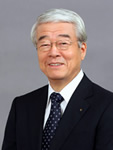
Mayor of Kobe
I would like to offer my wholehearted congratulations for the holding of this impressive ‘Live Love Animals International Conference on Animal Care in Kobe 2009’ in our city. I would also like to especially welcome those of you who have come from other places around the country, and beyond.
The basis of this International Conference on Animal Care is built on the animal rescue experiences that followed the Great Hanshin-Awaji Earthquake (Kobe Earthquake). This is to be a conference for exchanging information and discussing improved animal care and habitat protection, an opportunity to think how we should better fulfill our responsibilities and share the expertise and knowledge gained with the world at large. I hope therefore that all participants will engage in active discussions.
After the earthquake, a great many volunteers showed an extraordinary strength in the effort to reconstruct and restore Kobe city. As such, the year of the Great Hanshin-Awaji Earthquake has been referred to as ‘the first year for volunteering’ and some very strong ties were born as a result. For example, the Animal Rescue Center set up at the time of the earthquake brought together a group of volunteers now working in the dog adoption program at Kobe City Animal and Pet Management Center. As part of a process to build stronger ties between citizens, as in that example, and bringing citizen participation and cooperation into our municipal administration, Kobe is beginning to make real steps towards creating an attractive multi-faceted city – a City for the Medical Industry, a City for Cultural Creativity, a City for Design and a City for Tourism and Communication. In this endeavor, I ask all of you participating in this conference for your ongoing support and cooperation.
I would like to conclude my message by expressing my gratitude and respect for all the efforts of those who have made this conference possible. I wish you great success as well as good health and prosperity.
![]()
Junko YADA 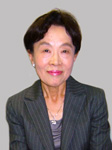
Chairperson, Kobe Society for
the Prevention of Cruelty to Animals
First of all, I would like to bid you all a big welcome to the opening of the Live Love Animals International Conference on Animal Care in Kobe 2009.
I would also like to express my deepest gratitude to the many concerned people whose efforts have made it possible to hold this conference with the participation of people from all over Japan and from abroad. That we have been able to make this gathering happen is due to all of you who are attending today as well as to the kindness of the many people who have provided support and cooperation, including NPO Knots.
These days, the importance of animals as family members or life partners for people is becoming increasingly widely recognized. We are holding this International Conference on Animal Care with this as a backdrop and, over the next two days, we will be participating in and listening to opinion exchanges through panel discussions as well as commemorative speeches about our responsibilities towards animals, etc. I urge you all to further extend your support and cooperation so that this conference will have the effects of expanding the circle of understanding and compassion to even more people, nurturing the spirit of animal welfare, and contributing to the realization of a society in which people and animals can coexist.
Finally, I have sincere expectations that this conference will serve to deepen exchanges between all interested parties nationwide and that it will prove to be a significant event with many positive repercussions.
Sanae MATSUDA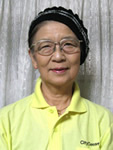
Vice Chairperson,
The Great Earthquake Animal Rescue Memorial Association
![]()
Expectations for the International Conference on Animal Care in KOBE 2009
On behalf of the co-organizers, ‘The Great Earthquake Animal Rescue Memorial Association’, I would like to express my sincere gratitude to the generous efforts made by everyone from various fields, as well as all the hard work done by the members of NPO Knots, the main organizer of this international conference.
Looking back, it was the animal rescue operation after the earthquake 15 years ago which started the movement to improve animal welfare, and here in Kobe, as well as nationally, the joint work of official and private organizations began. ‘South Hyogo Earthquake Animal Rescue Headquarters’ (formerly the ‘Great Earthquake Animal Rescue Memorial Association’) received such warm and heartfelt support from people inside and outside the country that it left a giant footstep for the development of animal welfare. This formed the foundation of today’s animal welfare and subsequently led to the realization of this conference.
15 years ago we faced animal rescue operations under a cloud of restrictions and constraints, but ever since, emergency evacuations for people together with their pets (at the initial stage), plus immediate rescue operations for animals as well as humans has become socially accepted. This is a great step forward, and I feel an overwhelming sense of achievement.
In recent years, with the advancement of our aging society and increase of single people and nuclear families, living together with animals (pets) has a greater significance and our bond with animals has become essential. There are, however, still numerous problems to overcome when we face animal welfare issues. Sometimes we feel discouraged or even disappointed but at least, while we are wading through the obstacles, it is with people who share the same goals and who are helping each other. We are also backed by the wishes of people who want to change current society and solve its several problems and there are many people hard at work, making their efforts in different places each day.
I hope that all the messages we will have here, from various discussions and from multiple angles about animal issues, will spread far and accurately to all participants and to as many people as possible. I believe that, in so doing, this will lead to the improvement of animal welfare and better co-living with animals. Unless such new and accurate knowledge is disseminated, I worry that no improvement will be made and that animal welfare activities may become separated from society.
I trust that the two days of the international conference will be valuable for all participants and I ask all participants to tell friends and colleagues, plus those others who could not make it to the conference, about the progress we are making.
Thank you very much.
![]()
Kayoko TOMINAGA
Chairperson, NPO Knots
Thank you Message
It is my greatest pleasure and with much gratitude that I welcome you all to Kobe in December 2009 for this ‘International Conference on Animal Care’. This event is an unprecedented conference for Japan as it is concerned with all the animals related to us, humans. Before anything else, I would like to express my sincere gratitude to the many people who have given us their generous understanding and warm support to make this day possible. Thank you so very much. I know I can also ask you to continue with us as we move forward in the future.
It has been 15 years since the Great Hanshin Awaji Earthquake, 10 years since the amendment of the Act for Welfare and Management of Animals, a legislative move which marked a turning point for animal administration in Japan under which animals would, from then on, be officially treated as living beings. It has also been 10 years since Knots first began its activities. During this period, wide ranging discussions have taken place addressing the human-animal relationship, and new concepts have been formed. As our name – Knots – suggests, we feel we have managed to gather and create ties and bonds that are both strong and effective. I would like to express my wish here, within this forum of like-minded people, that our conference will be the opportunity by which you leap forward into the future.
When I think about humans and animals once again, I would summarize that both people and animals should be ‘thankful’ for each other’s existence, that all living creatures deserve to be ‘happy’ until their last moment, and that there is a ‘responsibility’ to make that happen. This is certainly true for we humans, is it not?
We are hoping to hold this conference every two years. While in the present we continue to confront so many human problems which are difficult to solve, I will be very happy if, throughout this conference, we can be ever-mindful of the simple fact that ‘we humans are animals too’. Thinking about animals ultimately leads us to think about ourselves as living creatures, to face up to ourselves, and expand our considerations.

